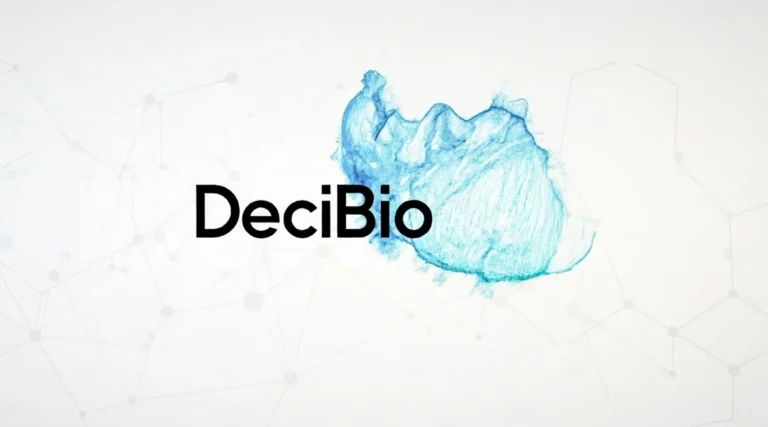
Ray Therapeutics Gets $8M Grant to Work on New Gene Therapy for Vision Loss Disease
In a significant milestone for the field of regenerative medicine and vision restoration, Ray Therapeutics—a clinical-stage biotechnology company specializing in optogenetic gene therapies—has been awarded an $8 million grant from the California Institute for Regenerative Medicine (CIRM). This substantial funding infusion will directly support the continued clinical development of RTx-015, Ray Therapeutics’ lead investigational gene therapy candidate designed to restore vision in individuals suffering from retinitis pigmentosa (RP), a rare, progressive inherited retinal disorder that ultimately leads to blindness.
The grant from CIRM, one of the most influential funding bodies for stem cell and regenerative medicine research in the United States, represents a crucial endorsement of Ray Therapeutics’ innovative approach to treating degenerative eye diseases. It underscores the organization’s confidence in the company’s underlying science, clinical development strategy, and the potential transformative impact of its lead program on the lives of patients with RP.
A Debilitating Disease with Limited Treatment Options
Retinitis pigmentosa affects approximately 1 in 4,000 people worldwide, impacting nearly 100,000 individuals in the United States alone. The condition is characterized by the gradual degeneration of photoreceptor cells in the retina, typically beginning with the loss of night vision during adolescence, followed by the progressive narrowing of peripheral vision, and eventually leading to complete blindness. RP can be caused by mutations in any of over 60 different genes, making it a highly genetically heterogeneous disorder. Currently, there are no curative treatments available for the vast majority of patients, and most therapeutic approaches under development target specific genetic mutations, leaving many individuals without viable options.
Ray Therapeutics is aiming to overcome this limitation through the development of RTx-015, an optogenetic gene therapy that has the potential to benefit RP patients irrespective of the specific genetic mutation responsible for their disease. This mutation-independent approach marks a significant shift in the therapeutic landscape and could represent a major breakthrough in the effort to restore sight to those who have lost it due to RP.
The Promise of Optogenetics in Vision Restoration
At the core of Ray Therapeutics’ scientific approach is optogenetics, a cutting-edge technology that involves the use of light-sensitive proteins to modulate the activity of neurons. In the context of vision restoration, optogenetics allows for the reprogramming of retinal cells that remain intact after photoreceptor degeneration—typically retinal ganglion cells or bipolar cells—by delivering genes that encode light-sensitive proteins. These proteins enable the cells to respond to visual stimuli, effectively bypassing the damaged photoreceptors and restoring some degree of visual perception.
RTx-015 is designed to deliver an optimized optogenetic construct to the retina via a single intravitreal injection. The goal is to reintroduce light sensitivity to the degenerated retina and reestablish a visual pathway to the brain. Preclinical data have demonstrated promising results, showing that the therapy can elicit robust and sustained light responses in the retina, restore visual behaviors in animal models, and offer a favorable safety profile.
What sets RTx-015 apart is its mutation-agnostic design, meaning it is applicable to a broad patient population regardless of the underlying genetic defect. This universality could significantly expand access to gene therapy for RP patients, many of whom have not received a definitive genetic diagnosis or are affected by rare or poorly understood mutations.
Support from the California Institute for Regenerative Medicine
The newly announced $8 million grant from CIRM will help Ray Therapeutics advance RTx-015 through clinical development, supporting activities such as patient enrollment, regulatory interactions, trial operations, and data analysis. The grant was awarded following a rigorous peer-review process conducted by CIRM’s Grants Working Group (GWG), which includes leading scientists, clinicians, and patient advocates. The proposal for RTx-015 received unanimous support from the reviewers and was awarded the highest possible score, signifying exceptional scientific merit and potential for significant clinical impact.

“Retinitis pigmentosa remains a devastating condition with no approved treatments for the vast majority of patients,” said Paul Bresge, Chief Executive Officer and Co-Founder of Ray Therapeutics. “We are deeply grateful to CIRM for their belief in our science and their continued support of our programs. We are honored to partner with CIRM as we advance therapies that have the potential to transform the lives of patients.”
The grant is a part of CIRM’s broader mission to accelerate the development of innovative stem cell and gene therapies for serious and unmet medical needs. Since its founding in 2004, CIRM has awarded over $3 billion in funding to more than 1,000 regenerative medicine projects across California.
“Restoring vision is one of the most powerful ways we can improve quality of life,” noted Dr. Jonathan Thomas, PhD, JD, Chair of the CIRM Board. “Ray Therapeutics is advancing a potential breakthrough treatment for a high unmet medical need for people in California and around the world with advanced RP, for whom there are currently no treatment options. We are proud to support this exciting program.”
Moving Forward: Clinical Development and Beyond
With the support of CIRM, Ray Therapeutics plans to continue its first-in-human clinical trial of RTx-015, which is evaluating the safety, tolerability, and preliminary efficacy of the therapy in patients with late-stage RP. The trial marks a pivotal moment for the field of optogenetics in ophthalmology, as few gene therapies in this space have advanced beyond the early stages of clinical development.
The company is also exploring the potential application of its optogenetic platform to other retinal diseases, such as age-related macular degeneration (AMD) and Leber congenital amaurosis (LCA), further broadening the impact of its technology.
Ray Therapeutics’ leadership team includes seasoned professionals with deep expertise in gene therapy, neuroscience, and ophthalmology. Co-founder and CEO Paul Bresge previously served in executive roles at leading biotech companies, while the scientific team includes pioneers in the field of optogenetics and retinal biology.
As the company continues to scale up its development efforts, the partnership with CIRM provides both financial support and validation from a respected authority in regenerative medicine. This collaboration reflects a shared vision: to bring novel, life-changing treatments to patients with degenerative eye diseases who currently face a future without sight.
A Vision for the Future
The grant from CIRM marks a significant step forward not only for Ray Therapeutics, but for the broader field of vision restoration. By combining the precision of genetic engineering with the transformative potential of optogenetics, RTx-015 offers hope to thousands of individuals with RP for whom current medical science offers little recourse.
As clinical development progresses and more data become available, the potential for RTx-015 to redefine the treatment paradigm for inherited retinal diseases becomes increasingly clear. With the backing of a prestigious institution like CIRM and a dedicated team committed to scientific innovation, Ray Therapeutics is well-positioned to bring its groundbreaking therapy one step closer to patients in need.
In an era where precision medicine and gene therapy are reshaping the landscape of healthcare, Ray Therapeutics stands at the forefront of a movement to restore what was once thought to be permanently lost: the gift of sight.





